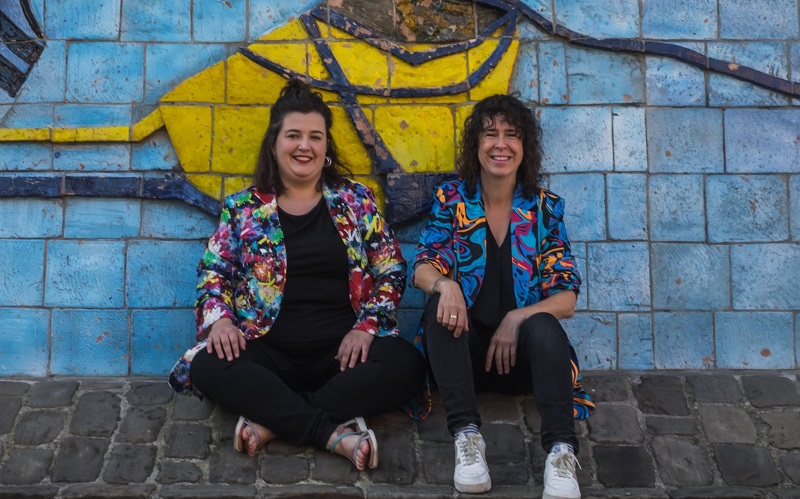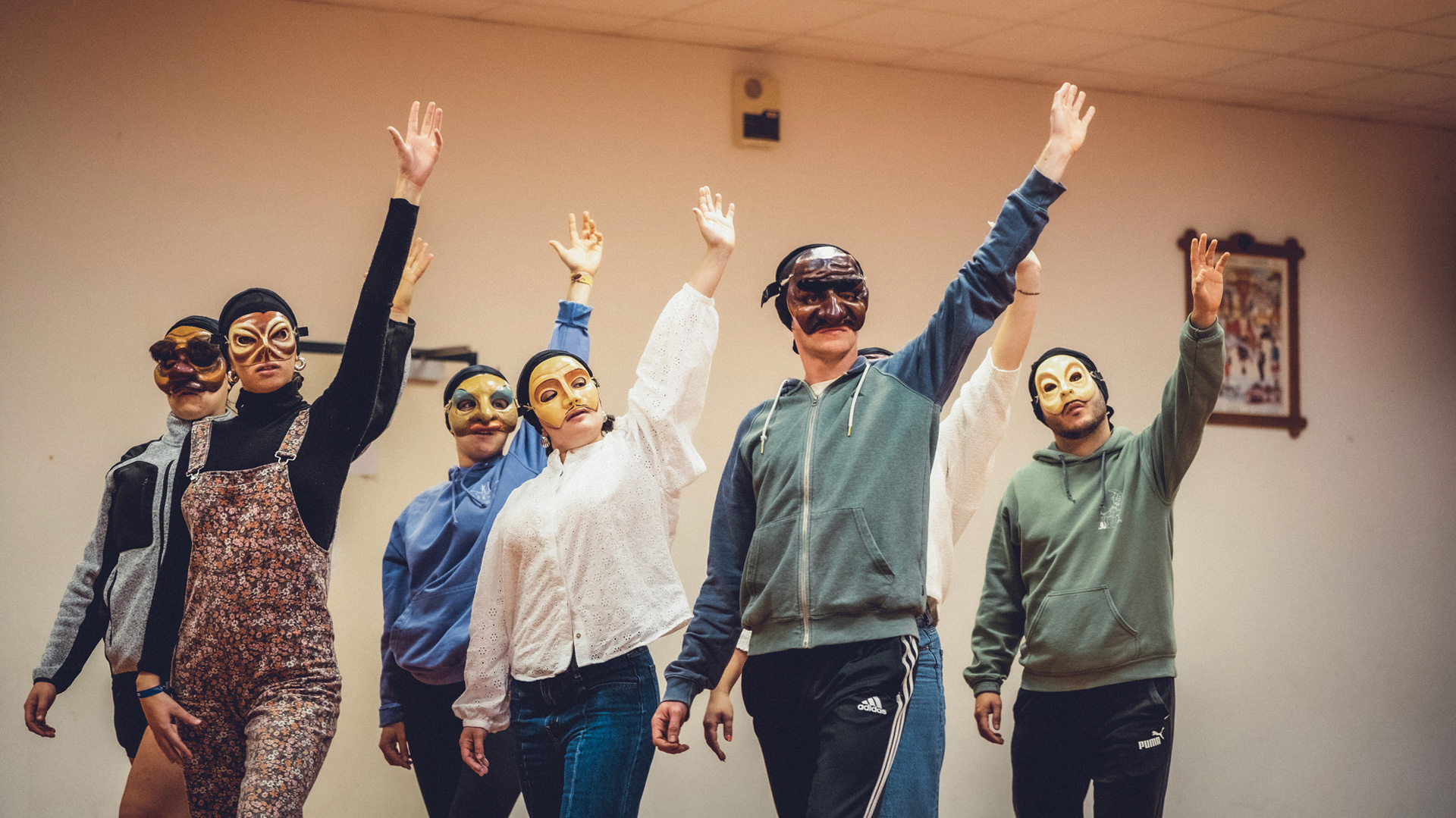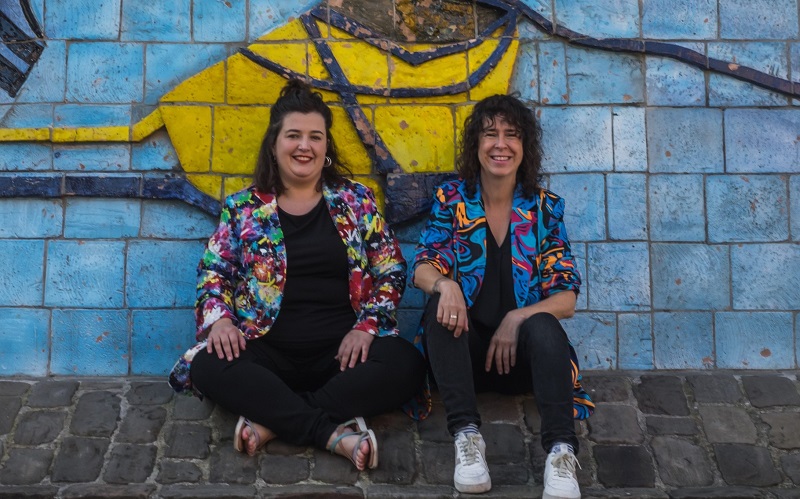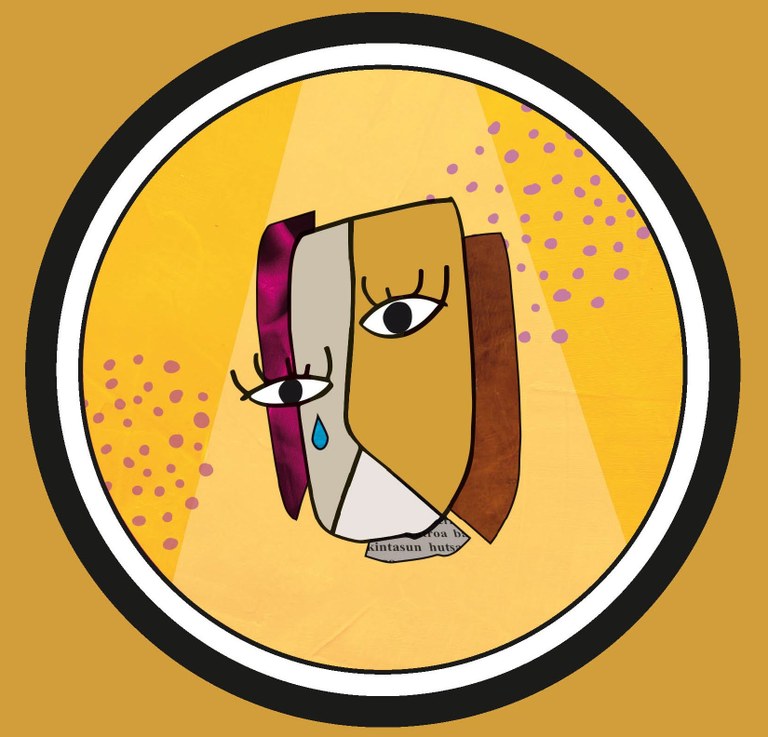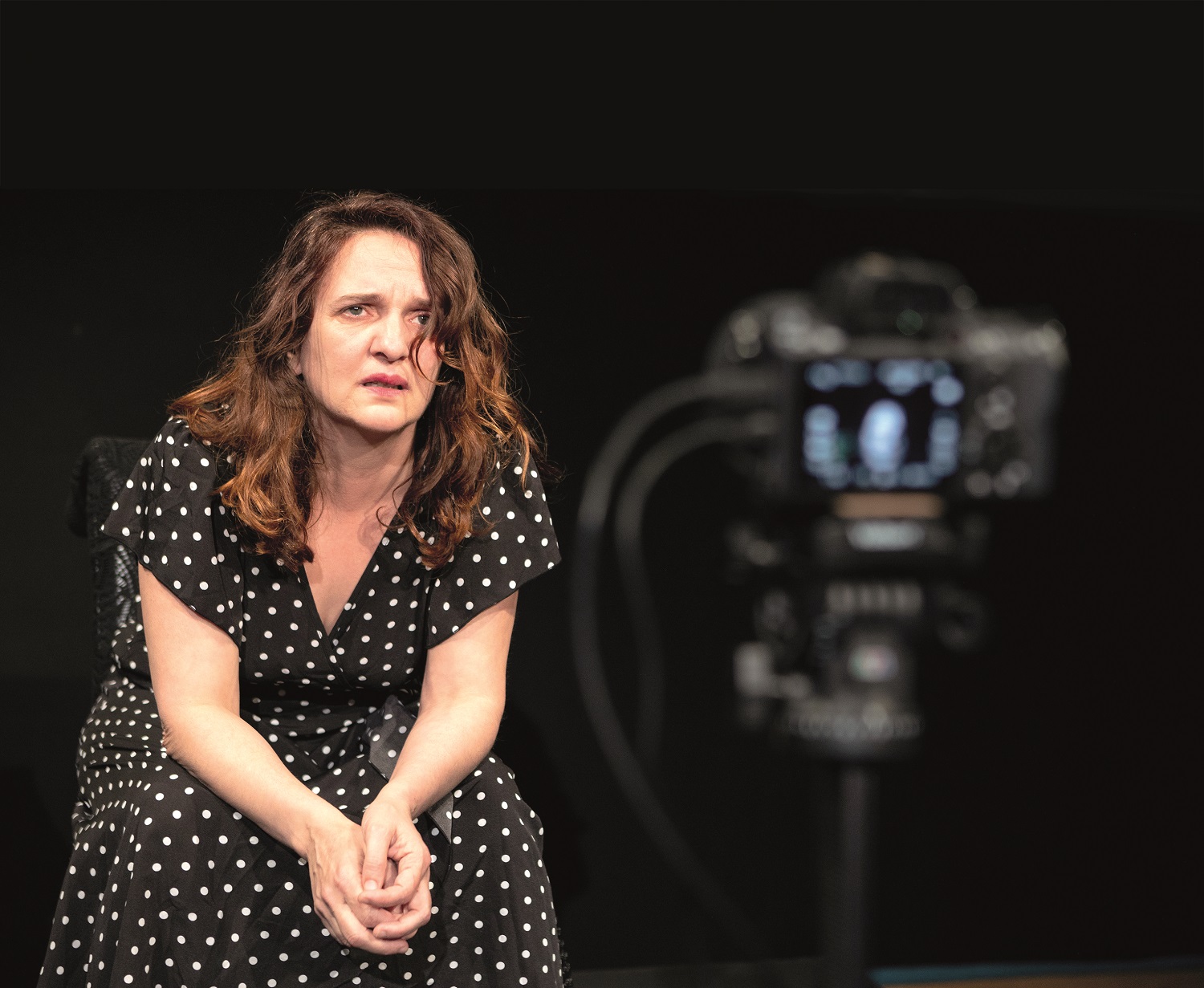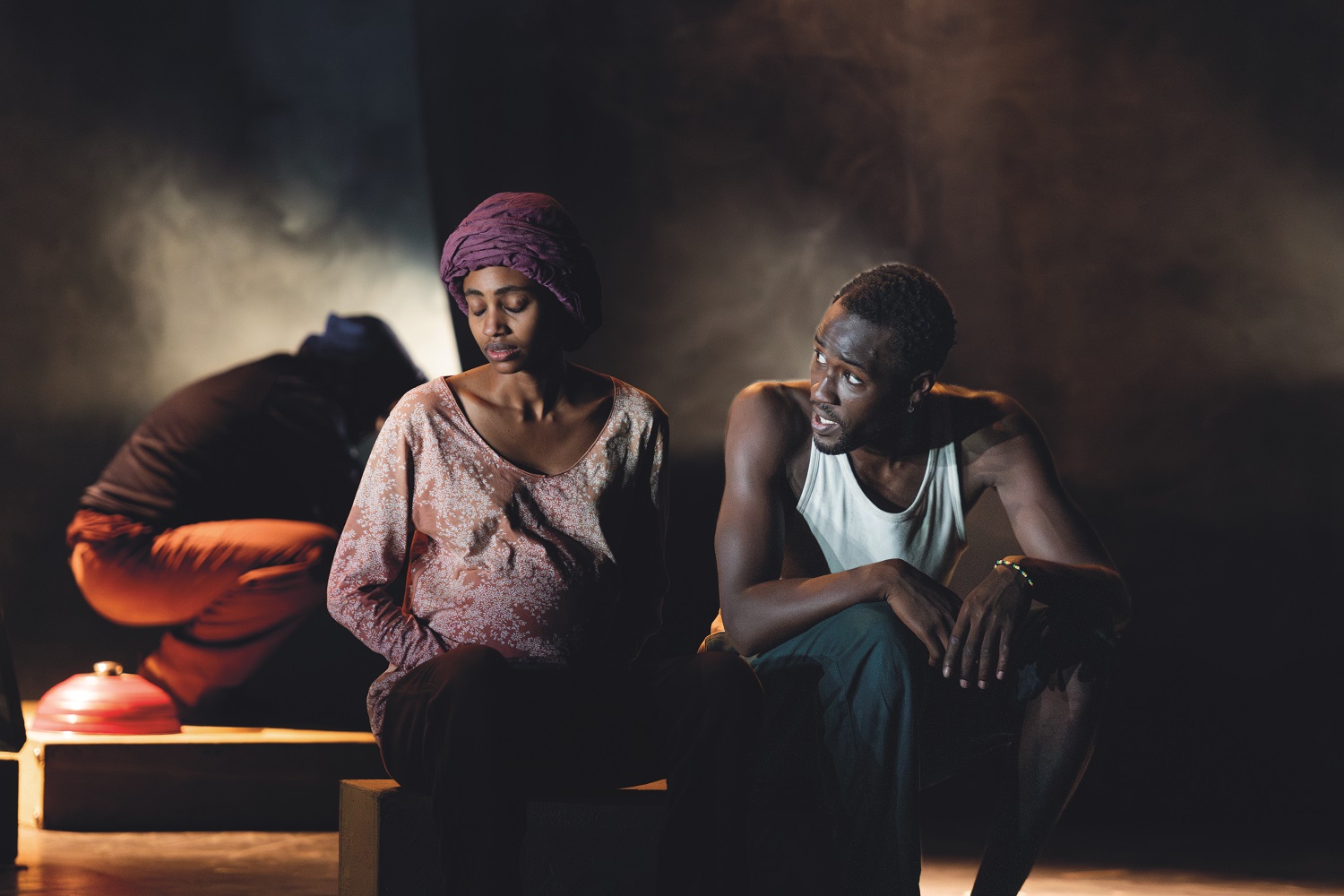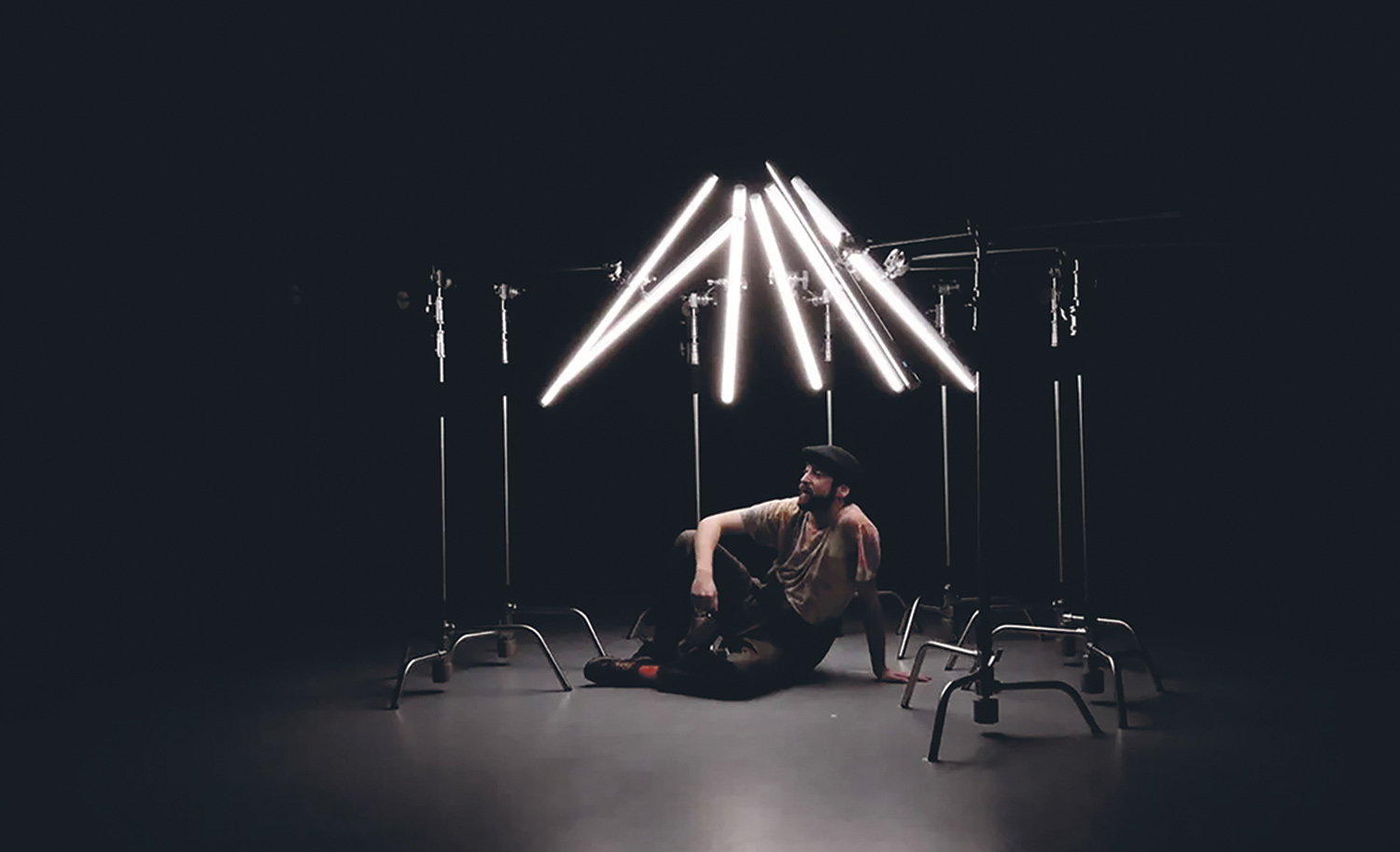Oier in Guilla: "Success is getting communication with people, that's what we work for."
- Barrio Larratxo de San Sebastián, 1975. Member of the cultural association Mikelazulo de Orereta and the collective Metrokoadroka. Journalist, writer and playwright. We have spoken in the hands of Zauri Bolodia (Txalaparta), especially in theatre: “I think the kind of theater we do offers another reading. According to Jota, the friend of the book, ‘everyone has the right to act on the stage’. Moreover, our amateur or professional theatre goes beyond the dichotomy”, the interlocutor tells us.
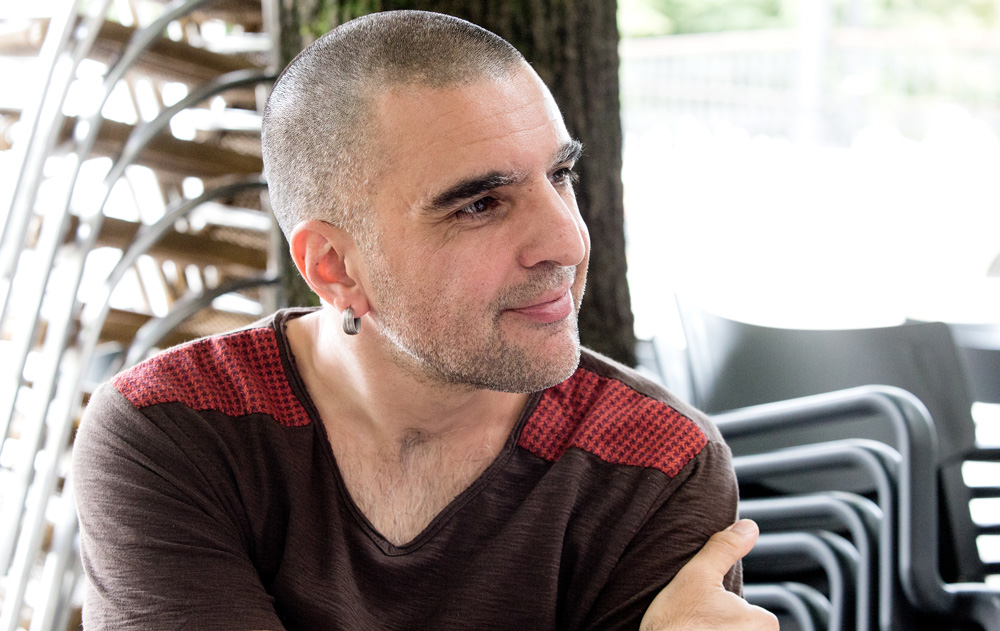
Idoia Beratarbide has illustrated the book Zauri Bolodia. A job you like, right?
Yes, of course. The illustrations are often not mentioned and the images are essential to understand the book. I take them as a different text. In this case, it is a proposal on the character. In the posters, clothing and scenography of our collective, Idoia marks an aesthetic and a style.
He has written about the day-to-day life of an actor in crisis. The personality of the person, character and actor you described, I found it incredible. How does the actor keep his daily humor?
The mood of an actor does not differ from the mood in which a person lives every day. It is true that the theater leads him to be surrounded by people and that is demanding, but it is at the same time a cloak. That is, it helps you not to feel alone or to warn the center of the world. The playwright – unlike the writer – realizes that she is not alone, that the challenges and problems are not just her. That for us is a great consolation.
Does the playwright need “the passion for changing the world”? Or isn't it that much?
That passion is an attitude, but one thing is the desire to change the world, which sometimes is the impulse of youth, and another, when we get to maturity, to want to live that feeling of changing the world. At an age, creators work with the intention of living with that feeling, not with the passion for changing the world. Otherwise, it would be very unrealistic and frustrating. However, living with that feeling is fundamental, you have to immerse yourself in your work with all your personality and passion. What you live may be insignificant, but it's inevitable. Passion is the work engine. Even if the intention to change the world is not real, it serves as a boost. “Your work has moved me inside” or “I have come out of the scene with another humor”, listening is very nice.
The book has been read. You've often been interviewed. The words “drag” and “success” of the book have become famous.
The expression “success” and “arrastaka” is by Ander Lipus. I heard Eneko Sagardoy telling her that I had heard Lipus, and I liked it. I mean, sometimes we succeed and sometimes we crawl. The book Mr. Mrs was also well received, but this time I have been asked for more interviews than ever before, and that surprised me. I am a shy person and I have nothing to say about the other world, anyone has to say in any other trade the same as I or more, I say it sincerely ...
However, the author must defend the book.
That's it. My first consideration is this: “What I have to say is in the book, why do I have to go out again to say more in the media?” But the book isn't just yours: editor, illustrator, it's people who have thought about the book process. I have therefore taken the responsibility of defending the book as a performance and a small game. I've made my character the defense of the book. As I've taken on that role, I've felt calmer and I've done as if I've kept writing a book in my interviews. I felt a desire to keep writing the book. In the theater, from the moment we accept our character, we find a way to be honored. I've taken the conversations as a continuation of that work.
“We creators live the ego up and the ego down, but without the ego, can it be creative?”
Actor Al Pacino says that “success is fine, the shame is that it is often mistaken for fame.” That is what you say in the book.
At one time, the success of our peers was complex. We were confused because our work was starting to reach an increasingly larger audience. The desire for “success” made us feel guilty. I read this quote in a newspaper after a performance, at the bar of a tavern. He nailed me. It helped me a lot in understanding the situation we are in. I realized that we need success. Al Pacino’s phrase confirmed: “We also want success, we want it to reach as many people as possible.” If not, what do we go to the plaza for? Many people hinder a possible path of “success”. Why? The success is getting communication with people, and that's what we work for. We have to accept that work should reach a few people, but that is not the goal. Many times we mix the success and fame that we have in front of people. I've had a lot of internal struggles around success, including the need for self-criticism.
In Zauri Bolodia, “your” wound has appeared. Should we take the pain of the character you created seriously? There is also the “risk” of appearing as a “victim”.
There is always a risk of falling into the victimization, also in the self-passion, but this risk situation helps you to be self-critical. For example, I have learned that when we ask for responsibility from an agent or a political institution we too must take our own responsibility. Sometimes we fall into the world of complaint and forget that. That has happened to me, too. It's a lesson. At the end of the book, I thought the tone was pretty dark, I felt “concern,” I feared I would get a little bit of humor. Would it be too cheery? However, as I wanted to explain my evolution, I saw it necessary to write like this. Fortunately, most of you have told me that it's interesting and necessary to count. I was reassured to hear that the book is a kind of “massage”, which can hurt, but which serves to remove the pain.
You've approached the ego issue, by chance.
“Since my job as a writer, theatre has helped me to get down to earth, theatre is a lesson of humility”
Creators live the ego up and the ego down, but without the ego, can you be a creator? The ego is not black or white. I admire the works that are published through collective writing, but also the work of some creators who work alone. The situation of some may be disproportionate, but if your work tells me something extraordinary, the ego’s is in the background for me. Many times the author does not care as a person, but I appreciate his work, whether it is the book, the album,… The important thing is his work. Without ego, that person wouldn't create that job. The peers and colleagues have learned to relativize the ego. Another thing is to act with convenience, with pride, blinding in the world of the image. In this sense, the image that is spreading on social networks is very dangerous. Feeding our image is very dangerous, because it generates ugly contradictions.
It usually combines individual and collective work. Where is the difference between the writer’s “reader” and the playwright’s “audience”?
When you publish a book, it's very difficult to find feedback with the reader. Before Mr. Mrs. and the Bag of Sores I didn't know him. To the extent that you do not know the way the book does, therefore, it does not feed you. In this sense, I feel to many writers the need for criticism and the dependence on opinion, and if you do not receive feedback, it is normal. In theater, feedback is immediate and savage. You are in front of the public and it works or not. He immediately realizes that the same work is not the same from function, what the public gives you helps shape the work. Work is changing as it develops. The live audience forces you to know yourself immediately, to learn, to know the size of your work. The audience hits you a lot when you invent it, and it gives you a lot of punch when you don't guess it, but you have to keep working.
To what extent it has helped you to be a playwright on the subject. And vice versa?
Being a playwright has taught me a lot when it comes to writing, and I owe it to the public. The codes of playwright and literary writer are totally different. In my case, the author of the theater has trained me more than the literary reader. I'm more a literature reader than a theater viewer, I feel like a mentor as a theater viewer, I have to constantly work on ways to reach the audience. Since my job as a writer, theater has helped me down to the ground, theater is a lesson of humility.
He has also written in depth about identity as a person of a family coming from another culture.
“The audience gives you wonders when you invent it and gives you a grudge when you don’t guess it.”
These reflections on identity have been worked on mainly in relation to the gender issue. The texts are at the base of the Miss Karaoke theatre [under the direction of Javier Barandiaran, Oier Guillan and Metrokoadroka], and come from the creative process of this play. I mean, what is the body? Who decides what your body is? What is the definition of your body? How do you build yourself and personality? The issue is complex. Our colleagues and colleagues have worked on the theme of identity, uniting language and body. The Basque identity of each of us has many nuances: there are those who have their origin in the Basque Country of their grandfather, their parents, their father or their Basque mother; the father does not, the mother does... There are children of people who have long lost Euskera, but who have experienced many internal struggles. Euskaldunes typologies are complex. Because of the political situation, over the past few decades, our minds have moved and we are relocating. Everyone experiences their own process, with internal struggles, with mistakes, with contradictions, because you don’t feel at ease when trying to define yourself… In my case, accepting what I am has brought good effects and given me a great liberation.
In the book you have expressed intense feelings and emotions.
In fact, assuming that I am a descendant of immigrants – with the exception of my sister – to understand that not all of the former believe what I believe in Basque – at least as far as words are concerned – has affected me in a special way. What I write is the result of that personality, that's me, and I must use it. If I've created something, I've created it from what I am, and not from what I want to be, or from what others want me to be. That has become a weakness for me. Because you only do what you can do, and not another. Because as you look for a voice of your own, you build your own identity of what you are. As an Euskaldun, because I make my small contribution to Euskaldunity, as I am from an Erdaldun environment, when those people see that I have chosen to create, work and live in Euskera, they create curiosity. You can reach very defensive people in a different way, you can reach people who, being a Castilian speaker, may feel limited. I have learned what Basque culture is through a political decision. I didn't naturally pick it up, and the emotional impact that Euskera has is different for me. If you're looking for honesty, it's really interesting that your entity is formed this way.
Miss Karaoke moved the interior of many people, especially among Euskaldunes in the Castilian speaking area.
“The acceptance of what I am has brought me good consequences, and it has given me an impressive liberation.”
When we have worked in the Castellanoparlante area people have been touched, it is different to represent themselves in the very Euskaldun area or in the most Castilan-speaking area. When we raise the issue from the perspective or tradition of immigrants, people have become defensive in the Basque sphere. On the contrary, in the Castilian speaking sphere people have come to us very excited, because many of us from Euskaldunberris have focused on the emotional self-awareness of being Basque and the option of being Basque, that is, because we have reached people who do not have the Basque world as the main reference.
“Placing myself in discomfort is an indispensable creative attitude for me, also in life,” he says. What is living in discomfort?
My commitment to work is to jeopardize my work, to live in discomfort. Sometimes you see that the work does not work and you always have the temptation to take another path. The feeling of the need for survival is terrible: “It could create a small market and receive better reviews,” he may think. I try to avoid it. First, because discomfort puts me in tension. When I create, I need tension and discomfort. Moreover, sometimes it may seem that discomfort is an attitude contrary to the official trend, to the dominant and to the institutionalization, and it is, but not only. The real discomfort is that the friends next to you lend themselves to rejecting them, surprising your friends, bewildering the people who support you, even that's what you have to get to. For a moment it's easy to be an anti-system, but you need to be critical, that is, to have the ability to go further, to the point where those friends who accompany you question your work. That's living in discomfort.
In the book he mentions several dramatists: Bertolt Brecht, Thomas Bernhard, Gabriel Aresti, Angélica Liddell, Sarah... You're a creator who's gone from poetry to theater.
Poetry and theater are very close to me, they're even closer to me in today's new dramaturgies. I know a lot of actors very close to poetry. Jon Gerediaga is a playwright, poet beforehand. Many of the playwrights I'm interested in have given up authorship and are very close to poetic writing: Bernard's works are poetic in shape. The case of Aresti, by his time, could be closer to Brechten than to many of the current dramatists. Aresti's plays may not belong to contemporary language, but it did have a connection with Tobera, for example. In Aresti’s play, the connection with local theater language is evident. He said that the theater should be written differently, not taking literature as a reference. In the texts it is not so noticeable, but the preamble of the play Lau theatre Arestiano, written by Ramón Saizarbitoria, is very interesting in this sense. The foreword shows that Aresti started writing differently, tailored to the actors of the theater company. Aresti wrote it adapted and designed for the actors (the company Jarrai, among others), on their way to contemporary theatre. Aresti's poetry, without being close to the theater, we've easily brought it to the stage.
The section “Poetic dialogue for telling a truth of Gabriel Aresti with the poem” draws attention.
That poetry is written in the time when we created the place of sensible Gabriel, I did something as I immersed myself in Aresti's work, and I was born with contradictions and inner struggles. We had to create a script, and I created that dialogue through my work. The truth is, I have something special about Aresti.
What has Iparralde Theatre taught you?
In the early days, we saw many theatres here and there, in the North there was a lot of theater and the relationship with the South began to consolidate. [Piarres Lartzabal] Ibañeta [updated by Ander Lipus]. Also works by Mattin Irigoien or Le Petit Théâtre du Pain. I was struck by the theater of Iparralde, and I learned that in Euskal Herria there was a theater of his own: “From this tradition you can feed yourself,” I thought. We still have a lot to learn from there. Later, reading the book Antton Lukuren Libertitzeaz was a discovery, I'm still learning from it. Seeing the play Lukuren Fauxto, we discovered that you can create an experimental breaker contemporary theater and at the same time give up the labels. From tradition, learning that you can make a powerful theater between the definition of “amateur” and “professional” and dichotomy.
By:
Mirari Martiarena and Idoia Torrealdai.
When: 6 December.
Where: In the San Agustín cultural center of Durango.
------------------------------------------------------
The fourth wall breaks and interferes directly, standing and fearless. ZtandaP is a way of counting... [+]
By:
Mirari Martiarena and Idoia Torrealdai.
When: 6 December.
Where: In the San Agustín cultural center of Durango.
-------------------------------------------------
The fourth wall breaks and interferes directly, standing and fearless. ZtandaP is a way of counting from... [+]
We're in chaos. That has been said to us by the French media, which Parliament has brought down the government on 4 December. The fear that political, institutional, social, economic chaos will rage us all in the horde of hell comes to our veins. What comedy we're going to play... [+]
Fight and metamorphosis of a woman
By: Eneko Sagardoy and Vito Rogado.
WHEN: 1 December.
WHERE: Serantes Room of Santurtzi.
-----------------------------------------------------------
Immediately after proposing the plan, the person who decided to buy the tickets online... [+]
DEBT
Text and address: Agurtzane Intxaurraga.
Actors: Look at Gaztañaga, Iñake Irastorza, Jabi Barandiaran.
When and where: 25 October, Gazteszena (Donostia).
----------------------------------------
To the flower that is looking for its own light, being grasped at its... [+]
IN
MIÑA Artedrama. Equipment: Sambou Diaby, Ander Lipus, Eihara Irazusta, Mikel Kaye.
WHERE: Arriaga Theatre in Bilbao.
NO: 25 October.
----------------------------------------------
Ibrahima balde and AMETS Arzallus counted in Basque in Miñán in 2019. Five years later... [+]
I started to mentally write my article while I was in the car. I usually have the best ideas in the car while driving alone. I'm going to Bilbao, to the Arriaga theater. The Artedrama company is today staging the Miñan play. It's Friday, October 25.
Approaching the atrium of the... [+]











